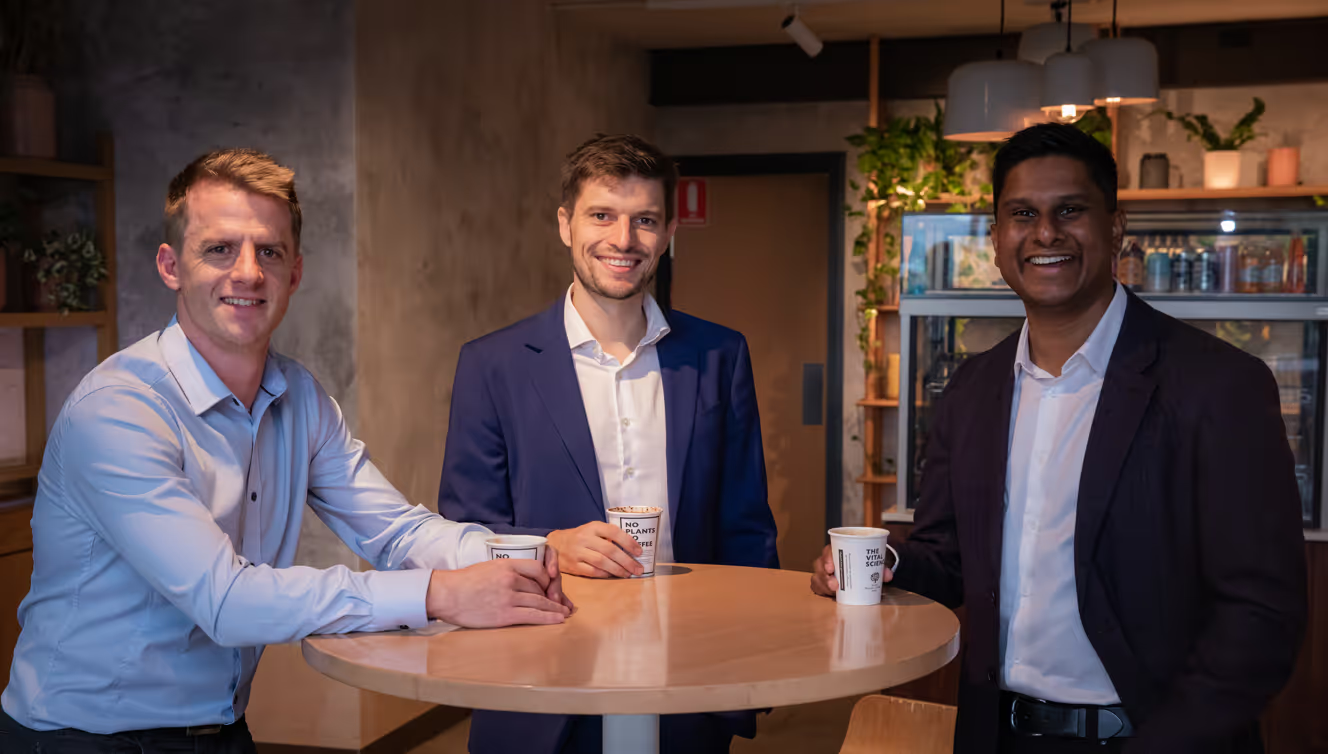Australia feeds people well beyond our borders. But the part most of us don’t see—the supply chain that sits between a farm gate and a consumer—is where margins are won or quietly lost.
If you work in agribusiness, you already know the feeling: a narrow harvest window, weather that refuses to cooperate, limited transport capacity when everyone needs it at once, and customers (local or offshore) who don’t care about any of that—they just want the product delivered on spec and on time.
Australia’s agriculture supply chain isn’t one chain. It’s a network of thousands of businesses moving food and fibre across a continent, through processing, storage, cold chain, compliance checks, distribution centres, ports and shipping lanes—often under tight time and quality constraints.
This article is a practical guide to how Australia’s agriculture supply chain works, what makes it uniquely challenging, and where the biggest improvement levers tend to sit. It also outlines how Trace Consultants can help agribusinesses, processors, exporters and government agencies strengthen performance, resilience and sustainability.
Ready to turn insight into action? Start with a conversation: Contact Trace Consultants
What “Australia’s agriculture supply chain” actually includes
When people say “ag supply chain”, they often picture trucks leaving farms. That’s part of it—but only one part.
A simple way to define it:
Australia’s agriculture supply chain is the end-to-end system that plans, produces, stores, moves, processes, certifies and delivers agricultural products from inputs and farms through to domestic consumers and export customers.
It typically includes:
- Inputs and upstream suppliers: seed, fertiliser, chemicals, feed, packaging, equipment, fuel, maintenance parts
- On-farm production: cropping, livestock, horticulture, dairy, aquaculture, etc.
- Aggregation and storage: receival sites, silos, cold rooms, packhouses, feedlots, yards
- Processing and value-add: abattoirs, dairies, grain mills, wineries, canneries, packing and grading
- Quality, safety and compliance: testing, certifications, traceability, biosecurity controls
- Transport and logistics: road, rail, intermodal, cold chain, containers, bulk freight
- Export infrastructure: port receivals, container parks, stevedores, shipping schedules
- Domestic distribution: wholesalers, DCs, retailers, food service, online channels
In the real world, the boundaries blur. For example:
- A grower might pack, chill and distribute direct.
- A processor might run its own fleet and export program.
- A cooperative might own storage, rail access or port capacity.
That’s why improving “the agriculture supply chain” isn’t about optimising one link—it’s about improving decisions and handoffs across the full system.
The Australian reality: why agriculture supply chains are harder here
Almost every supply chain leader in Australia has to deal with distance. In agriculture, distance isn’t a nuisance—it’s the operating model.
A few realities make the Australian agriculture supply chain uniquely complex:
1) Geography and freight corridors shape everything
Australia’s production regions are often far from major population centres and even further from export customers. That turns transport into a core cost driver and a core risk.
2) Seasonality creates “all at once” peaks
Most industries can smooth supply and demand over the year. Agriculture often can’t. Harvest windows, live export schedules, and perishable shelf-life create concentrated peaks—and that’s exactly when shared capacity (labour, transport, storage) is tightest.
3) Product integrity is non-negotiable
Fresh produce, chilled dairy, meat and seafood are unforgiving. A temperature excursion, poor pallet airflow, a missed cutoff, or a delay on the tarmac can turn into claims, rework, spoilage—or brand damage.
4) Export complexity is built in
Export chains add handoffs and compliance: documentation, inspections, container availability, port receivals, vessel schedules, and changing destination requirements. These aren’t “edge cases”. For many categories, they’re the standard.
5) Risk is structural, not occasional
Weather variability, water constraints, biosecurity, labour availability, and global trade disruptions aren’t rare events anymore. They’re part of the baseline. Which means resilience must be designed into the chain—not bolted on after a bad season.
A quick “paddock to port” map you can use with your team
If you’re trying to align stakeholders (operations, procurement, logistics, planning, commercial), it helps to map the chain in a shared language.
Here’s a simple flow that works across many Australian ag categories:
- Plan (demand, acreage, herd, inputs, labour, harvest capacity, pack/processing slots)
- Source (inputs, packaging, contractors, transport, third-party storage, services)
- Produce (grow, raise, harvest)
- Handle (grading, washing, chilling, packing, QA checks, lot capture)
- Store (ambient, chilled, frozen; bulk, palletised; quarantine/hold zones)
- Move (farm pickups, linehaul, intermodal, last mile, containerisation)
- Process / Value-add (where relevant)
- Export / Distribute (ports, DCs, wholesalers, retail, food service)
- Measure & improve (service, cost-to-serve, waste, claims, working capital, emissions)
If your organisation can’t draw this in one page, with clear ownership and KPIs at each step, improvement efforts tend to fragment quickly.
Where performance leaks: common pain points in agriculture supply chains
You don’t need a massive transformation program to get value. But you do need to be honest about where the chain is leaking performance.
Here are patterns we see repeatedly across Australian agriculture and food supply chains:
1) Planning is disconnected from operational constraints
Plans get made without enough visibility of:
- harvest/receival capacity
- packhouse line rates and labour
- cold storage space
- carrier availability
- port cutoffs and container supply
The result is predictable: expediting, short shipping, overtime, demurrage, spoilage, and “heroics” to recover.
2) Inventory sits in the wrong place (or in the wrong form)
In agriculture, inventory isn’t just “how much”. It’s:
- where it sits (regional vs metro, near port vs inland)
- what state it’s in (bulk vs packed, chilled vs frozen, QA released vs held)
- how quickly it can be redirected (domestic vs export, customer-specific specs)
When inventory positioning is wrong, costs rise and service suffers—even if total stock looks reasonable.
3) Transport is managed as a series of bookings, not a system
Many agribusinesses still manage freight lane-by-lane, supplier-by-supplier, week-by-week.
That’s understandable—things move fast.
But without a system view you lose opportunities like:
- backhaul and triangulation
- standardised carrier performance management
- route optimisation and load consolidation
- contract discipline (accessorials, waiting time, credits)
4) Data exists—but isn’t decision-ready
Agriculture supply chains often have a mix of:
- legacy ERPs
- spreadsheets for harvest and intake
- standalone QA systems
- transport carrier portals
- DC/WMS data
- export documentation systems
If teams don’t trust the numbers, they default to judgement calls. That can work—until the chain is under stress.
5) Risk is tracked, but not quantified
Most organisations can list risks. Fewer can answer:
- Which risks matter most to service and margin?
- Where are the hidden single points of failure (tier-2 or tier-3)?
- What’s our realistic time-to-recover if X happens?
Without quantified scenarios, resilience discussions stay theoretical.
The improvement levers that matter most
Below are practical levers that consistently move the dial in Australian agriculture supply chains. They’re not “one size fits all”—but they are a solid menu to work from.
Lever 1: Network design that matches how your product behaves
In agriculture, network design isn’t just “number of sites”. It’s the physics of:
- time and temperature
- harvest peaks
- variability in yield and grade
- export vs domestic flows
- labour availability by region
- freight mode options (and constraints)
Network design questions worth answering properly include:
- Where should we hold inventory vs flow-through?
- Which products should be cross-docked, and which need buffer stock?
- What’s the best mix of regional aggregation and metro distribution?
- Should packing/processing be centralised, regional, or hybrid?
- What happens to cost and service under “bad season” scenarios?
This is exactly the kind of work supported by Trace’s Strategy & Network Design capability.
Lever 2: Planning that respects seasonality and constraints
Good planning in agriculture is less about having a perfect forecast and more about:
- clear assumptions
- rapid re-planning when reality changes
- shared decisions across operations, commercial and finance
- explicit trade-offs (service, waste, cost, working capital)
For larger agribusinesses and processors, structured S&OP / IBP-style rhythms can work extremely well—as long as they’re adapted to seasonal dynamics and operational constraints.
Key practices that help:
- scenario planning for weather and yield variability
- harvesting and intake plans connected to pack/processing capacity
- allocations and customer prioritisation rules agreed in advance
- clear policies for substitutions, partials, and spec changes
- exception-based workflows (so planners focus on what matters)
Trace supports these kinds of uplifts through Planning & Operations, often in tandem with technology enablement via Technology.
Lever 3: Cold chain and quality as an operational system (not just compliance)
Cold chain failures rarely come from one dramatic event. They usually come from small, repeated breakdowns:
- long dwell times at dispatch
- poor temperature monitoring handoffs
- inconsistent pre-cooling
- mismatched packaging and pallet configuration
- unclear ownership of non-conformance resolution
If your teams are dealing with frequent claims, spoilage, or quality holds, the answer is rarely “try harder”. It’s usually:
- better process design
- clearer controls
- better visibility and exception management
- clearer supplier and carrier performance measures
This connects strongly to Trace’s Warehousing & Distribution work (particularly where DCs, cold rooms, cross-docks, or yard flow are involved).
Lever 4: Transport strategy that treats freight as a profit lever
Transport is often one of the largest controllable costs in agriculture—especially in a high-distance market like Australia.
But “cutting freight cost” is a trap if it’s done in isolation. The real target is:
- lower cost-to-serve
- without creating service failures, quality issues, or capacity shortages at peak
Practical improvement areas include:
- carrier strategy and contracting aligned to seasonal peaks
- lane and rate benchmarking (including accessorial discipline)
- backhaul programs and collaborative freight models
- dynamic routing and load building (where relevant)
- performance scorecards and dispute processes that actually close the loop
If transport is a major pain point, you may also want to read:
Lever 5: Procurement that reduces risk (not just price)
Agriculture supply chains depend heavily on:
- packaging (cartons, pallets, labels)
- third-party cold storage
- transport providers
- maintenance contractors
- seasonal labour providers
- input suppliers
If procurement is managed as “buying”, you’ll miss risk signals. If it’s managed as a commercial and supplier-performance system, you can reduce disruption and improve outcomes.
High-value procurement moves include:
- category strategies that reflect seasonality and criticality
- supplier performance management (OTIF, quality, claims, responsiveness)
- contract structures that align incentives at peak
- modern slavery and sustainability risk management
- supplier concentration analysis and contingency options
Trace’s Procurement team can help structure these programs and embed supplier governance that sticks.
Lever 6: Visibility that turns data into action (without boiling the ocean)
You don’t need a “big bang” platform rollout to improve visibility. But you do need:
- clear definitions (what does “on time” mean? what is a “complete” order?)
- clean master data where it matters
- dashboards aligned to decisions, not vanity metrics
- operational rhythms that use the insights (daily, weekly, monthly)
For agriculture supply chains, visibility priorities often include:
- inbound and intake status
- cold chain temperature compliance
- order fill and DIFOT/OTIF performance
- inventory status by grade/spec/hold state
- carrier performance and dwell time
- export readiness (documentation, container status, cutoff risk)
Trace supports this via Technology and the modular Trace .Solutions Suite, including tools focused on performance and risk visibility.
Lever 7: Resilience designed into the chain (N-tier, scenarios, recovery plans)
Resilience work becomes valuable when it answers practical questions:
- Where are our tier-2 and tier-3 dependencies?
- What happens if a key input is constrained (packaging, fertiliser, spares)?
- What happens if a port lane closes or shipping schedules shift?
- What’s our recovery plan—and how quickly can we execute it?
For agriculture, this is particularly relevant because disruptions often cascade:
a weather event affects harvest timing → peak volumes compress → storage fills → carriers tighten → export cutoffs are missed → quality suffers → claims rise → working capital locks up.
Trace supports resilience programs through:
- Resilience & Risk Management
- and practical approaches like N-tier mapping (see: Agriculture Supply Chain Resilience and Risks – How N-tier Analysis Can Help)
Lever 8: Sustainability that is measurable and operational
Sustainability in agriculture can become vague quickly unless it’s tied to operations.
Practical supply-chain-led sustainability usually focuses on:
- transport emissions (route efficiency, mode shifts, utilisation)
- energy use in cold storage and processing
- packaging optimisation and recyclability
- waste reduction (spoilage, rejects, rework)
- supplier standards and traceability
Trace works with organisations to embed sustainability through Supply Chain Sustainability, often integrated with network and planning decisions rather than treated as a standalone initiative.
The metrics that actually matter (and how to avoid the usual traps)
Agriculture supply chains drown in metrics. The goal is a small set that:
- are trusted,
- are linked to decisions, and
- show trade-offs clearly.
A practical scorecard usually includes:
- Service: DIFOT/OTIF, order completeness, export cutoff hit-rate
- Quality: claims rate, spoilage/waste, temperature excursion incidents
- Cost: freight cost-to-serve, handling cost per unit, premium freight events
- Working capital: days inventory (by category), stock on hold, write-offs
- Reliability: schedule adherence (processing/pack), carrier performance, dwell time
- Resilience: supplier concentration, time-to-recover for critical scenarios
- Sustainability: transport emissions intensity, waste, energy intensity (where available)
If you want a deeper dive on service measurement, Trace has a range of related content on the Insights hub: Trace Insights
How Trace Consultants can help agribusinesses strengthen supply chain performance
Agriculture supply chains don’t need theory. They need improvements that work under real-world variability.
Trace Consultants supports organisations across Australia with practical, data-led supply chain and procurement work—connecting strategy to execution, and helping teams make confident decisions when the trade-offs are real.
Here are common ways we help agriculture and food supply chain organisations:
1) End-to-end supply chain diagnostics (fast clarity, prioritised roadmap)
When leaders say, “We’re busy but not getting better,” a diagnostic creates alignment.
Typical outputs include:
- current-state mapping (flows, constraints, decision points)
- quantified cost and service baseline
- key bottlenecks and root causes
- prioritised improvement roadmap with effort/impact sizing
If you’re considering a diagnostic as a starting point, Trace’s broader service set is outlined here: Our Services
2) Network optimisation and footprint strategy
We build fact-based network models and scenarios, helping organisations choose options that hold up across:
- good seasons and bad seasons
- export disruptions
- capacity changes
- growth in new channels or markets
Start here: Strategy & Network Design
3) Planning uplift (S&OP / IBP, forecasting, inventory policies)
We help teams move from reactive firefighting to clear planning rhythms, with:
- role clarity and decision rights
- scenario planning
- inventory and allocation policies
- dashboards and exception workflows
Learn more: Planning & Operations
4) Warehousing, cold storage and distribution improvement
From regional storage strategy through to DC design, we support:
- layout, flow and dock/yard improvements
- operating model and labour planning
- WMS requirements and implementation support
- automation business cases (where it makes sense)
Explore: Warehousing & Distribution
5) Transport strategy and carrier performance improvement
We help organisations reduce transport cost and risk without breaking service, through:
- lane strategies and contracting
- benchmarking and invoice governance
- performance scorecards and supplier management
- routing and load optimisation approaches
Related reading: Transport management in Australian agriculture
6) Procurement and supplier governance
We strengthen procurement as a commercial and risk capability:
- strategic sourcing and category strategy
- supplier performance management (DIFOT/quality/claims)
- supplier risk and concentration reviews
- sustainability and compliance alignment
Explore: Procurement
7) Resilience and risk management (including N-tier analysis)
We support practical resilience programs that go beyond risk registers:
- N-tier mapping and dependency analysis
- scenario modelling and response playbooks
- resilience governance and monitoring
Explore: Resilience & Risk Management
8) Technology enablement (visibility, dashboards, planning tools)
We help organisations select, design and embed technology so it changes decisions and behaviours—not just reporting.
Explore: Technology
And: Trace .Solutions Suite
Where to start: a practical 90-day action plan
If you’re not sure where to begin, here’s a sensible sequence that works in many agribusiness settings.
Weeks 1–3: Build the fact base
- map end-to-end flows and constraints
- confirm service promise (domestic and export)
- baseline costs, waste, claims, inventory, transport performance
- define what “good” looks like for the next season
Weeks 4–8: Prioritise the big levers
- identify the few constraints that drive most issues (capacity, cold chain, transport, planning, data)
- quantify options (what happens if we shift inventory, add cross-dock, change carrier mix?)
- select initiatives with clear owners and measurable outcomes
Weeks 9–12: Start implementation where value is immediate
- lock in planning rhythms and decision rules for peak periods
- implement transport governance and performance scorecards
- tackle one or two operational bottlenecks (dock flow, staging discipline, temperature monitoring handoffs)
- align procurement and supplier management to critical lanes and inputs
If you’d like Trace to help you shape and deliver this kind of roadmap, start here: Speak to Trace
FAQs: Australia’s agriculture supply chain
What’s the biggest constraint in agriculture supply chains?
It depends on the category, but the most common constraints are capacity at peak (harvest/pack/processing), transport availability, and cold chain integrity for perishable products. The best improvements usually start by identifying the true constraint rather than attacking symptoms.
How do we reduce transport cost without hurting service?
By shifting the focus from “cheaper rates” to total cost-to-serve: better loading discipline, fewer premium moves, improved carrier performance, backhauls, and clearer rules for when to expedite. A system view beats lane-by-lane negotiations.
Do we need new technology to improve our supply chain?
Not always. Many improvements come from better decisions, clearer process, and cleaner data definitions. That said, targeted visibility and planning tools can deliver outsized value—especially when they support daily and weekly decision-making.
How do we manage export volatility and shipping disruptions?
The practical answer is scenario planning + inventory and allocation rules + clear export readiness controls (documentation, quality status, container/cutoff risk). Resilience work should be anchored in time-to-recover and customer impact—not just “lists of risks”.
What does “N-tier risk” mean in agriculture?
It means looking beyond direct suppliers to understand dependencies further down the chain—like packaging sub-suppliers, fertiliser inputs, spare parts, or subcontractor labour. In agriculture, these hidden dependencies can become supply chain “single points of failure”.
How long does a network optimisation project take?
It depends on scope and data readiness, but many network strategy programs can produce a clear recommendation set in weeks, then move into staged implementation. The key is aligning modelling to decisions the business is actually ready to make.
Closing thought
Australia’s agriculture supply chain is one of the most operationally demanding systems in the economy. It has to work across huge distances, short windows, tight quality constraints, and global market volatility—and it has to do it efficiently.
The good news is: most supply chains don’t need a reinvention. They need a small number of high-leverage decisions made well, backed by a fact base, and implemented with discipline.
If your chain feels like it’s relying on heroics to get through each peak—Trace can help you move it toward something calmer, more predictable, and more profitable.
Start the conversation here: Contact Trace Consultants















